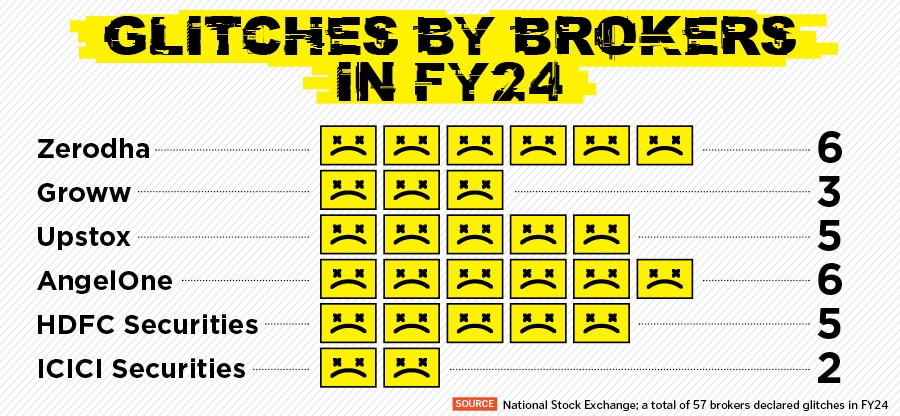
Big trading days: Online brokers disappoint
A surge in volumes puts to test the systems and processes of brokers. Users have little recourse
 Brokers have to be prepared for days where there is a rush of users in the system. This is typically seen on days like Budget day or when election results, including state election results, are announced.
Image: Shutterstock
Brokers have to be prepared for days where there is a rush of users in the system. This is typically seen on days like Budget day or when election results, including state election results, are announced.
Image: Shutterstock
Users of Groww and Zerodha, the largest and second largest brokers in India, were irate on Monday morning. As the market started trading on June 3, users faced problems logging in and executing trades. This came on a day when the markets were in an exuberant mood on account of the exit poll results, which suggested a return of the Modi-led Bharatiya Janata Party (BJP) government.
Part of the problem lay with CDSL, the Central Depository Services (India) Limited, which is one of the two depositories mandated to store securities held in demat accounts. Brokers faced problems connecting with CDSL in the morning. As a result, a TPIN sent by CDSL, which users need to trade, was unavailable. This issue seems to have been resolved quickly. What is unknown is whether problems with logins persisted, and for how long.
While the problems on June 3 were frustrating to users, they were also part of a pattern where heavy trading days see broker systems going down. This is typically on account of two factors. The first are broadly classified as risk-based issues, where even though users are able to log in, share prices may not be correctly displayed, portfolios may take time to load, and trades may take long to place. Orders are in queue is a common message users see. These set of problems are primarily on account of the broker end.
“Architecturally, brokerage systems are quite complex and several larger brokers aren’t able to handle a sudden spurt in trading activity,” says Tejas Khoday, co-founder and CEO of FYERS, an online broker. There are multiple API [application programming interface] integrations required.
This is where the planning capacity of the broker for big days comes into play. “Can we control the incident?” says Shanker Ramrakhiani, chief information security officer at IIFL Securities. “The answer is yes, but the organisation has to have the capacity to scale systems three or five times.” This means that brokers have to be prepared for days where there is a rush of users in the system. This is typically seen on days like Budget day or when election results, including state election results, are announced.



















